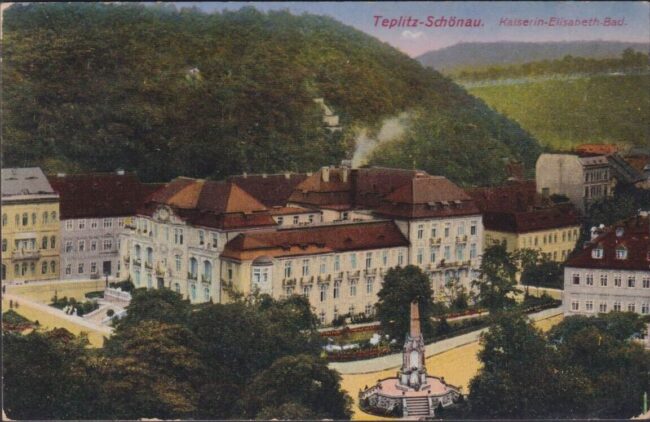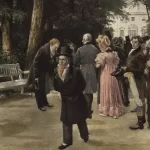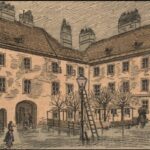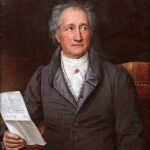The City
Teplitz (or Teplice) is a small city in the Czech Republic. After Karlovy Vary, it is the second biggest spa town in the country. The first authentic mention of the thermal springs is from the 16th century.
The city name appeared for the first time in 1154, when a Benedictine convent was founded in the area. During the centuries more fortified cities and castles stood in this place, usually destroyed by wars or fires.
After a blaze destroyed most of the city in 1793, it was rebuilt in Neoclassical style and quickly became a popular destination for recreation. It was Teplitz, where in 1813 the emperors of Austria, Prussia and Russia signed the Sixth Coalition against Napoleon.
After World War I and the dissolution of Austro-Hungarian Empire, the city became the part of the newly founded Czechoslovakia. Since majority of the population were Germans, two decades later in 1938 the territory was annexed by Nazi Germany. After the war the German-speaking majority was expelled from the city.
Its thermal mineral springs are famous all over the world.
Beethoven in Teplitz
According to contemporary medical doctrine one’s health could be restored by the beauty and powers of nature. Mineral springs were especially useful. Teplitz was a celebrated place, known and visited by royalty, aristocrats and artists. Beyond the healthy waters it offered beautiful parks, lakes and forests nearby.
In 1811, Beethoven was advised by his doctor (Dr. Malfatti) to take a rest and quit working for some time. In August, just as he was leaving from Vienna to Teplitz, he received a letter for a commissioned work. The request was incidental music for two plays by August von Kotzebue, King Stephan and The Ruins of Athens. Both plays were ordered for the theater opening in Pest (Budapest today). “Although my doctor has forbidden me to work, I sat down to do something for those mustachios, who are genuinely fond of me.” – wrote Beethoven to a friend. He spent his first three weeks working on these and in a heroic effort finished some thirty-five minutes of music. He was about to send back the completed pieces, when he got information about the opening: it was postponed for next year…
During his stay, among the many, he met with Austrian army veteran Karl August Varnhagen von Ense. He remembered the composer and the acquaintance saying, “I made the acquaintance of Beethoven and found this reputedly savage and unsociable man to be the most magnificent artist with a heart of gold,…”, then continues, “On his walks he seeks out distant places along the lonely paths between the mountains and through the forest, finding peace in the contemplation of the great features of nature…”.
Varnhagen introduced Beethoven to philosopher J. G. Fichte and the poet C. A. Tiedge. He must have enjoyed their company, especially of Tiedge’s, to whom he later wrote, “Every day I berate myself for not having made your acquaintance at Teplitz sooner…”.
After the long holiday in Teplitz, Beethoven felt better and returned to Vienna.
In 1812, end of July, he left for Teplitz for the second time. He was about to meet many friends and this time Goethe, too. The second visit is most famous not for the historic meeting between Goethe and Beethoven, but for the mysterious woman we know as Immortal Beloved…
|Related: Beethoven anecdotes: The Incident at Teplitz
On his way to Teplitz he briefly stopped in Prague to meet with his patron Prince Kinsky. In another two days his coach arrived at his final destination. The next day Beethoven composed his famous letter to the Immortal Beloved. In fact it was literally a day, as the letter has three sections, starts in the morning, continues in the evening and finishes next morning.
Who this mysterious woman is? Nobody knows for certain. It seems that the fate of this love had to be decided soon and during the stay in Teplitz. Why and how, nobody knows. What is certain is the result, the love was not to be, and for the next two years depression descended on Beethoven.
The other big event of this summer was, of course, the meeting with Goethe. They spent almost a week together, walking daily, talking and Beethoven playing for his companion. Later Goethe wrote to a friend, “I made Beethoven’s acquaintance in Teplitz. His talent amazed me. However, unfortunately, he is an utterly untamed personality, who is not altogether in the wrong if he finds the world detestable, but he thereby does not make it more enjoyable either for himself or others. …”
Beethoven was not completely impressed either, saying “Goethe delights far too much in the court atmosphere, far more than is becoming to a poet. …”
After the summer of 1812 Beethoven never returned to Teplitz again.









